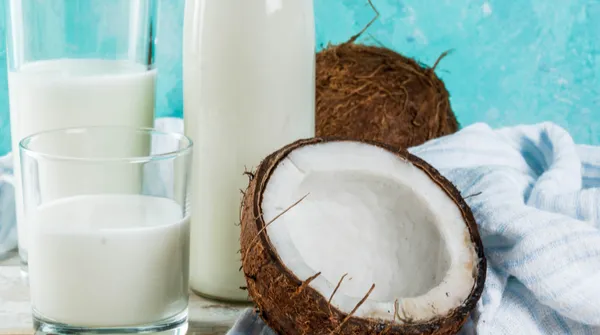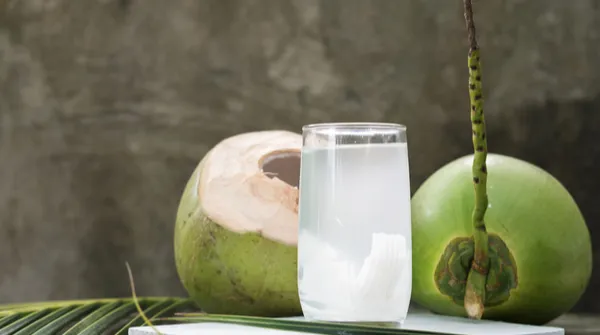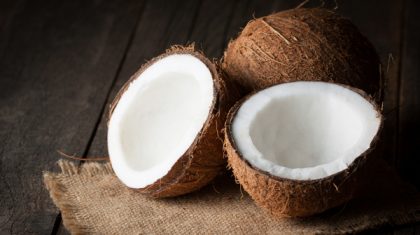Coconut or Nariyal is known to be a symbol of good luck. In fact, breaking a coconut during Indian rituals has become a part of all many Indian festivals. Let’s check some benefits of coconut for diabetes.
Benefits of Coconut for Diabetes
Coconuts are a great source of naturally occurring saturated fat. The saturated fat is from the short and medium-chain of fatty acids such as lauric acid that eventually gets converted into monolaurin, a compound known to destroy organisms that cause diseases.
Moreover, coconuts are also good for fighting flu, common cold, and other viral infections.
The nutrition profile of coconut is given below:
- Vitamin C
- Thiamin (vitamin B1)
- Folate
- Potassium
- Manganese
- Copper
- Selenium
- Iron
- Phosphorus
- Potassium
Different Ways to Consume Coconut for Diabetes
The benefits of coconut can be obtained in a variety of ways and the way it affects the blood sugar levels also depends on the same. Since it is highly nutritious and rich in fibre, there is no doubt in adding coconut to your diabetes diet. However, which form is best is what we further discuss below:

Coconut milk
As the name suggests, coconut milk is derived from the flesh of the coconut. The milk is obtained by squeezing out a grated coconut. In certain areas, people squeeze out the milk multiple times to get more quantity.
Coconut flour
Rich in dietary fibre, coconut flour is a better option in comparison to coconut milk when it comes to carb content. Moreover, the flour is popular for lowering cholesterol levels and thus reduces the risk of heart complications.
When compared to other flours such as wheat and corn, coconut flour has less carbohydrate content and therefore is beneficial for diabetics to include in their diabetes diet. Moreover, it is great for people with celiac disease as it is gluten-free too. The proteins present in coconut flour also help you look younger and in the repair and growth of cells.

- Coconut water
Coconut water is one of the best fluids for people with diabetes as it is full of electrolytes and refreshing in nature. It also acts as a great hangover remedy. Since this is mostly water and does not have the flesh, this form of coconut does not have fat and is negligible in calories too. With richness in antioxidants, a cup of coconut contains 46 calories and the following nutrients:
- Carbs: 9 grams.
- Fibre: 3 grams.
- Protein: 2 grams.
- Vitamin C: 10 percent
- Magnesium: 15 percent
- Manganese: 17 per cent
- Potassium: 17 percent
- Sodium: 11 per cent
- Calcium: 6 percent
Here are the different forms of coconut along with their glycemic index:
| Coconut Type | Glycemic Index rating (GI) |
| Coconut milk | 41 |
| Coconut flour (1kg) | 61.3 to 71.4 |
| Coconut sugar | 35 |
Another reason why coconut for diabetes is a good idea is due to it being an exceptional source of dietary fibre.

Coconut for Diabetics
Here are a few things to remember when a person with diabetes is consuming coconut or any other form of the fruit:
- Although there are many points in favour of coconut, it is to be also not forgotten that coconut is also high in fats. Even though they are good fats, anything in excess is not good for your health.
- Always opt for fresh coconut. In a case where you are unable to get fresh coconut, you can opt for coconut flour equivalent to 28-30 grams.
- Do not buy processed coconut oil and only virgin coconut oil. The processing of coconut oil produces a high level of trans fats, which is not good for your body.
- When cooking in coconut oil, do not opt for high heat as it can break the compounds present and decrease the overall benefit.
Also Read : What are the Benefits of Amla for Diabetes Patients?
The effect of different types of food on blood sugar levels can vary from person to person. Therefore, even though coconut can be considered a superfood, it is best to discuss this with your diabetes educator when including the fruit in your diet.





